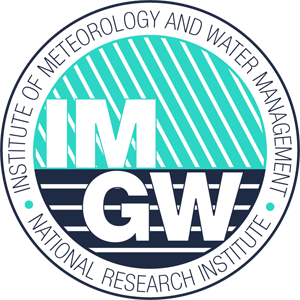Publication Ethitcs and Publication Malpractice Statement
In order to maintain fair practice and high standards of our Journal, the following guidelines are strongly recommended to be followed by 1. Authors, 2. Revievers and 3. Editors.
1. Authors:
Authors should present an objective discussion of the significance of research work as well as sufficient detail and references to permit others to replicate the experiments. Fraudulent or knowingly inaccurate statements constitute unethical behavior and are unacceptable. Review articles should also be objective, comprehensive, and accurate accounts of the state of the art. The authors should ensure that their work is entirely original works, and if the work and/or words of others have been used, this has been appropriately acknowledged. Plagiarism in all its forms constitutes unethical publishing behavior and is unacceptable. Submitting the same manuscript to more than one journal concurrently constitutes unethical publishing behavior and is unacceptable. Authors should not submit articles describing essentially the same research to more than one journal. The corresponding author should ensure that there is a full consensus of all co-authors in approving the final version of the paper and its submission for publication.
2. Reviewers:
Any manuscripts received for review must be treated as confidential documents. Privileged information or ideas obtained through peer review must be kept confidential and not used for personal advantage. Reviews should be conducted objectively, and observations should be formulated clearly with supporting arguments, so that authors can use them for improving the paper. Any selected referee who feels unqualified to review the research reported in a manuscript or knows that its prompt review will be impossible should notify the editor and excuse himself from the review process. Reviewers should not consider manuscripts in which they have conflicts of interest resulting from competitive, collaborative, or other relationships or connections with any of the authors, companies, or institutions connected to the papers.
3. Editors:
Editors should evaluate manuscripts exclusively on the basis of their academic merit having due regard to advice received from revievers and other independent advice as appropriate. The editors have a responsibility to reject a manuscript provided they have a reasonable doubt about its veracity ot the author’s intentions. The editors must not use unpublished information in the editor’s own research without the express written consent of the author.The editors should take reasonable responsive measures when ethical complaints have been presented concerning a submitted manuscript or published paper. The editors must deal with manuscripts in a timely manner and take every reasonable opportunity to avoid unnecessary delays in the processing of manuscripts. In the event that malpracticeare indentified, the editors will take appropriate actions. In the first place actions include issuing warnings and/or rejection notices to authors, and in cases assessed to constitute deliberate malpractice, the editors have the right to ban authors from further dealings. If malpractice is dectected after publication, works will be retracted and statements of retraction published in their place. All actions dealing with malpractice will be documented by the editors.
1. Authors:
Authors should present an objective discussion of the significance of research work as well as sufficient detail and references to permit others to replicate the experiments. Fraudulent or knowingly inaccurate statements constitute unethical behavior and are unacceptable. Review articles should also be objective, comprehensive, and accurate accounts of the state of the art. The authors should ensure that their work is entirely original works, and if the work and/or words of others have been used, this has been appropriately acknowledged. Plagiarism in all its forms constitutes unethical publishing behavior and is unacceptable. Submitting the same manuscript to more than one journal concurrently constitutes unethical publishing behavior and is unacceptable. Authors should not submit articles describing essentially the same research to more than one journal. The corresponding author should ensure that there is a full consensus of all co-authors in approving the final version of the paper and its submission for publication.
2. Reviewers:
Any manuscripts received for review must be treated as confidential documents. Privileged information or ideas obtained through peer review must be kept confidential and not used for personal advantage. Reviews should be conducted objectively, and observations should be formulated clearly with supporting arguments, so that authors can use them for improving the paper. Any selected referee who feels unqualified to review the research reported in a manuscript or knows that its prompt review will be impossible should notify the editor and excuse himself from the review process. Reviewers should not consider manuscripts in which they have conflicts of interest resulting from competitive, collaborative, or other relationships or connections with any of the authors, companies, or institutions connected to the papers.
3. Editors:
Editors should evaluate manuscripts exclusively on the basis of their academic merit having due regard to advice received from revievers and other independent advice as appropriate. The editors have a responsibility to reject a manuscript provided they have a reasonable doubt about its veracity ot the author’s intentions. The editors must not use unpublished information in the editor’s own research without the express written consent of the author.The editors should take reasonable responsive measures when ethical complaints have been presented concerning a submitted manuscript or published paper. The editors must deal with manuscripts in a timely manner and take every reasonable opportunity to avoid unnecessary delays in the processing of manuscripts. In the event that malpracticeare indentified, the editors will take appropriate actions. In the first place actions include issuing warnings and/or rejection notices to authors, and in cases assessed to constitute deliberate malpractice, the editors have the right to ban authors from further dealings. If malpractice is dectected after publication, works will be retracted and statements of retraction published in their place. All actions dealing with malpractice will be documented by the editors.
E-Mail Alerts
Add your e-mail address to receive forthcoming issues of this journal:
Most read
- Month
- Year
We process personal data collected when visiting the website. The function of obtaining information about users and their behavior is carried out by voluntarily entered information in forms and saving cookies in end devices. Data, including cookies, are used to provide services, improve the user experience and to analyze the traffic in accordance with the Privacy policy. Data are also collected and processed by Google Analytics tool (more).
You can change cookies settings in your browser. Restricted use of cookies in the browser configuration may affect some functionalities of the website.
You can change cookies settings in your browser. Restricted use of cookies in the browser configuration may affect some functionalities of the website.



